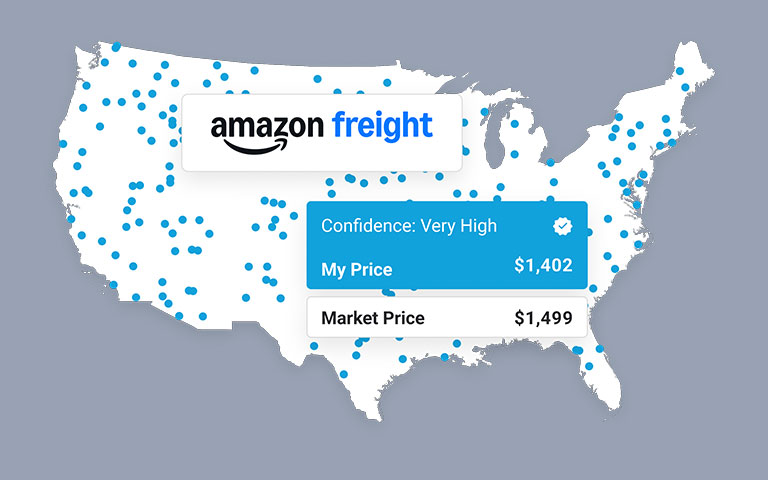In Pursuit of the Holy Grail, A KPI For TMS Performance

Part 1: Beyond the Basics of Cost and Time
Transportation Management Systems (TMS) revolutionize logistics operations and strategic supply chain management, offering unparalleled value. Yet, the quest to distill this vast potential into a singular, all-encompassing Key Performance Indicator (KPI) often leads industry experts to rely heavily on traditional metrics like cost reduction and on-time delivery rates. While these indicators provide essential insights, they barely scratch the surface of the comprehensive benefits and continuous advancements inherent to modern TMS platforms.
This exploration delves deep into the challenges of capturing the TMS's extensive impact through limited metrics. Traditional KPIs, while foundational, fail to encompass the full spectrum of advantages brought by TMS solutions, from operational efficiencies to strategic supply chain innovations.
We advocate for a nuanced, tailor-made approach to developing a suite of technical reports that resonate with an organization's unique goals, business model, and industry context. Our forthcoming series, "In Pursuit of the Holy Grail TMS KPI," will unfold in three parts. In Part 2, we will introduce and define a broader set of potential metrics. Part 3 will showcase how Shipwell simplifies capturing and reporting these and other customized metrics, leveraging advanced features to enhance data management and analytics capabilities.
Let's begin by examining the limitations of the most prevalent metrics providing specific examples to illustrate why they fall short in fully representing TMS efficacy.
Capturing More Than Just Delivery Timeliness
On-time delivery rate is a pivotal metric for assessing the logistical efficiency of a TMS, shedding light on the punctuality of operations. Yet, an exclusive focus on this KPI can inadvertently shadow the system's comprehensive capabilities. For instance, freight consolidation, a critical TMS function, strategically combines multiple smaller shipments into a single larger shipment, optimizing load efficiency and reducing costs—a nuanced benefit not captured by on-time delivery metrics.
Similarly, the process of carrier sourcing, enhanced by TMS, involves sophisticated algorithms that analyze historical performance data, pricing, and service quality to select the most suitable carriers for specific routes. This not only ensures reliability and cost-effectiveness but also fosters stronger carrier relationships.
Route optimization, another key TMS feature, leverages advanced algorithms and real-time data (traffic conditions, weather forecasts, and road closures) to determine the most efficient routes. This not only contributes to on-time deliveries but also minimizes fuel consumption and wear-and-tear on vehicles, enhancing sustainability and operational savings.
Automating manual tasks, such as invoice settlements and documentation, through TMS, eliminates human errors and streamlines workflows, leading to faster processing times and reduced operational expenses. Yet, the efficiency and cost savings derived from these automated processes are aspects that on-time delivery rates alone do not reflect.
Furthermore, the strategic value of advanced data analytics provided by TMS—offering insights into trends, performance bottlenecks, and opportunities for optimization—plays a crucial role in informed decision-making and long-term planning. These analytics can uncover patterns and insights that transcend the immediacy of delivery metrics, contributing to continuous improvement and strategic alignment.
In essence, while the on-time delivery rate is an essential indicator of a TMS's effectiveness, it only represents a fragment of the system's overall capabilities and benefits. A comprehensive evaluation requires a broader lens, encompassing the technical intricacies and strategic advantages that TMS solutions bring to the table.
Peering Beyond Surface-Level Cost Savings
Reduced freight expenditure remains a top priority for most supply chain leaders when assessing TMS solutions. Cost Reduction, often heralded as the ultimate measure of TMS efficacy, presents its own set of challenges. While reducing operational expenses is a crucial goal, focusing solely on cost can obscure other vital TMS benefits. However, cost KPIs only reveal part of the story. Obsessing over cost can inadvertently hurt quality, innovation, and sustainability:
Quality of Service: Prioritizing cost savings might lead to compromises in service quality, affecting customer satisfaction and long-term brand loyalty.
Carrier Relationships: A myopic focus on cost can strain relationships with carriers, potentially leading to service degradation or loss of favorable terms.
Innovation and Growth: Excessive cost-cutting could stifle investment in innovative technologies or processes that could drive future efficiencies and growth.
Sustainability: Cost-centric strategies might overlook environmental and social sustainability aspects, which are increasingly important in modern supply chains.
More importantly, fluctuating external variables make cost reduction challenging to attribute directly to the TMS itself.
Adapting Metrics For Evolving Priorities
On-time Delivery and Cost are influenced by many external factors, from fluctuating fuel prices and carrier performance to regulatory changes and market dynamics. These variables, often beyond the TMS's direct control, necessitate a nuanced approach to performance evaluation, integrating adaptive algorithms and machine learning models to optimize operations dynamically.
Both delivery and cost metrics provide selective glimpses into TMS performance. However, the diversity in supply chain models and evolving priorities necessitate customizable KPI selection, aligning metrics to specific organizational maturity stages, operational goals, and industry benchmarks.
The diversity in supply chain models underscores the need for a customized KPI framework. A TMS should offer modular analytics, allowing organizations to tailor performance metrics to their specific operational goals and industry requirements, moving beyond generic measures like cost and delivery timelines.
The evolving nature of TMS utilization within organizations highlights the need for a dynamic KPI framework that accommodates changing priorities and market conditions. Initial benefits in operational efficiencies pave the way for longer-term strategic gains, necessitating a balanced suite of KPIs that reflect both immediate and future value.
A Multidimensional Approach For Comprehensive Insights
Relying on single-dimensional KPIs like On-time Delivery Rate or Cost Reduction to evaluate TMS performance offers a limited view of the system's comprehensive benefits. A more sophisticated and holistic approach, employing a balanced and adaptable set of technical KPIs, is critical to capture the TMS's multifaceted value fully. In the intricate ecosystem of logistics and supply chain management, the accurate measure of TMS efficacy lies in a constellation of metrics, each shedding light on different aspects of performance and impact, guiding organizations toward operational excellence and strategic innovation.
A more sophisticated approach, employing a balanced and adaptive suite of technical KPIs, is essential to capture the full spectrum of TMS advantages. In the complex ecosystem of logistics and supply chain management, the true value of a TMS is best represented through a multifaceted lens, integrating both quantitative and qualitative metrics to provide a holistic view of performance and impact. Rather than relying on generic measures like on-time delivery and cost reduction, organizations need customized performance reports with multiple KPIs to evaluate modern TMS solutions holistically. This multifaceted approach integrates technical metrics across operational efficiency, sustainability, adaptability, innovation, and strategic growth opportunities.
Only with such comprehensive insights can supply chain leaders truly quantify the complete value proposition of TMS investments and guide usage strategies for transformative enterprise impact.
In Part 2, we will expand our exploration into the diverse landscape of TMS performance metrics, venturing beyond the foundational pillars of cost and time. This next installment will introduce a broader set of metrics designed for a comprehensive evaluation of TMS efficacy. We'll delve into how to meticulously calculate each metric, ensuring you're equipped with the tools to measure your TMS's impact accurately. Furthermore, we'll guide you through the nuanced art of interpreting these values, offering insights into how they interplay to paint a holistic picture of your transportation management's strengths and areas for improvement. In Part 3, we will delve into Shipwell's transformative capabilities in harnessing and elevating TMS performance metrics. This concluding installment will spotlight how Shipwell's advanced features streamline capturing, analyzing, and reporting various customized metrics, making data management and analytics intuitive and profoundly insightful. We'll explore the innovative tools and integrations that Shipwell offers, designed to empower users with real-time visibility and actionable intelligence across their logistics operations. Additionally, we'll illustrate how Shipwell facilitates a seamless, user-friendly experience in navigating complex data landscapes, enabling you to leverage this information for strategic decision-making and operational excellence.
From operational efficiency to customer satisfaction and sustainability, get ready to uncover the multifaceted dimensions that define the true success of your TMS.


.svg)








